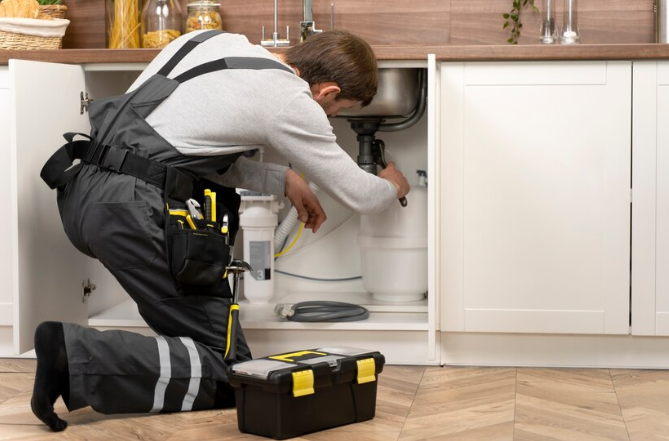
For many homeowners like me, a certain satisfaction comes from doing home repairs on their own. Handling minor electrical or plumbing issues can make you feel self-sufficient and in control. The pride in solving these problems without external help is undeniably fulfilling.
However, it’s important to recognize the boundaries of DIY repairs. While small fixes can be managed, larger, more complex issues require specialized knowledge and skills to prevent further damage and ensure safety.
My DIY Experience Went Wrong
A few months ago, I decided to fix a leaky faucet in my kitchen. I started with a wrench and a YouTube tutorial; I felt confident I could handle this minor repair myself. At first, everything seemed to be going well. I managed to stop the leak, and I felt a sense of accomplishment.
However, I noticed water pooling under the sink a few days later. My quick fix caused a small crack in one of the pipes, leading to a bigger problem. As the situation worsened, I realized I was out of my depth of knowledge. The water damage began affecting the cabinets and flooring.
That’s when I decided to call in a professional plumber. Within a short time, the plumber diagnosed the issue, replaced the damaged pipe, and ensured everything was properly sealed.
The next time I needed a water heater replacement, I immediately called a professional. This experience taught me an important lesson about the limitations of DIY repairs and the value of professional expertise.
When to Call a Professional Plumber
While tightening a loose faucet or unclogging a simple drain can be a quick DIY project, there are situations where calling a professional plumber is essential. Here are two scenarios where professional expertise is crucial:
- Pipe Bursts
If you experience a significant leak or a burst pipe, contacting a professional plumber is critical. These incidents can cause extensive water damage to your home, leading to costly repairs if not addressed promptly.
- Sewer Line Problems
Issues with your sewer line, such as blockages or breaks, require specialized equipment and knowledge to diagnose and repair. These problems can cause unpleasant odors, slow drains, and even sewage backups in your home.
When to Call a Professional AC Technician
Air conditioning systems are complex and require regular maintenance to function efficiently. While some basic upkeep, like changing filters, can be done by homeowners, other tasks like ac repairs should be left to professionals. Here are two situations where an AC technician is indispensable:
- System Malfunctions
If your AC unit is not cooling properly, making unusual noises, or cycling on and off frequently, it’s time to call in a professional. These symptoms can indicate various issues, from refrigerant leaks to electrical problems.
AC technicians have the training and equipment to safely diagnose and repair these issues. Attempting to fix these problems yourself can lead to further damage or even pose a risk of injury.
- Annual Maintenance and Inspections
Regular maintenance is key to extending the life of your AC unit and maintaining its efficiency. Professional technicians can perform comprehensive inspections, clean the internal components, and make necessary adjustments to keep your system running smoothly.
This preventive approach can save you money in the long run by avoiding costly repairs and ensuring your unit operates at peak efficiency.
